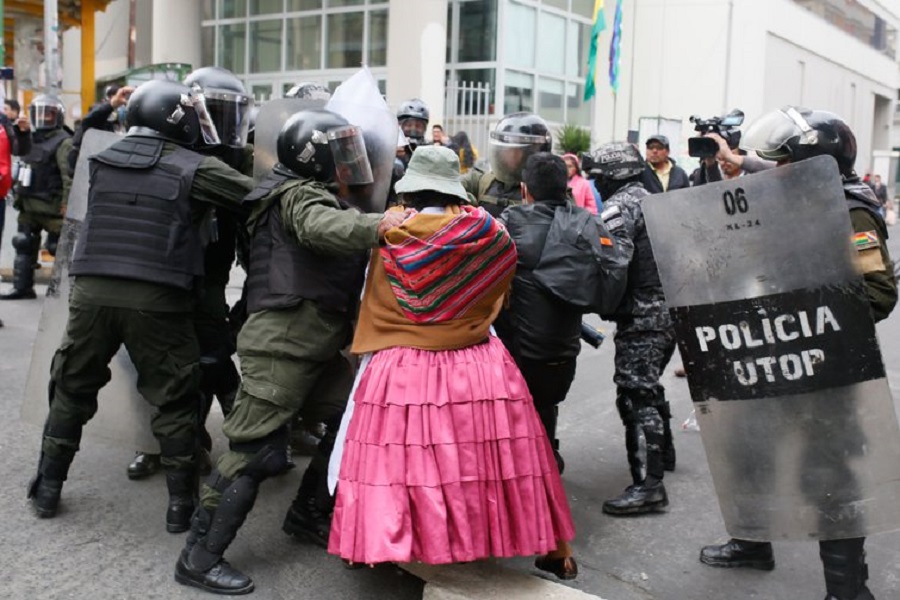RIO DE JANEIRO, BRAZIL – In the course of the changeover, the four state media institutions (ABI news agency, Cambio daily newspaper, Radio Red Patria Nuevo and Bolivia TV) were immediately taken over, and now the community radios are threatened with closure.
The indigenous radio stations “Red de Radios de los Pueblos Originarios” (“Original Peoples Radio Network”) have been the target of attacks since the opposition’s protests against President Evo Morales began following the October 20th election.

This has increased since the changeover, and some radios have been completely destroyed by police, soldiers, and supporters of the new government, and employees have been threatened. Since then, none of the radios have broadcast any more news.
Some are only allowed to play music, others have completely stopped operating, reports Rodolfo Machaca, a spokesman for the peasant movement. They are currently in the process of reviewing the shutdowns, destruction, and looting and securing the equipment that is still intact.
In Santa Cruz, the transmitter of the farmers’ union was looted, as was intercultural radio. In La Paz, the radio station of the small farmers’ association was destroyed, and an attempt was made to take over the women’s broadcaster Bartolina Sisa.
The coca farmer’s station was burned down in Cochabamba, and similar attacks occurred in other departments, Machaca said, who met President Morales in Argentina last week.
Now operators fear a general ban on existing municipal radio stations. Roxana Lizárraga, appointed by interim President Jeanine Añez as Minister of Information, presented last week a draft for a “Decree to regain freedom of expression in Bolivia”, which was drawn up together with representatives of private media.
One of the seven articles states that it is now a matter of “reassigning the radio stations to indigenous peoples in order to expand the right of access to information”.
The Secretary-General of the Bolivian Workers’ Center, Juan Carlos Huarachi, also voiced concern over the decree, stressing that these radio stations report on sectoral and regional issues. A transitional government is not entitled to affect the existing standards because it should only convene elections.
“It cannot direct the radio stations to stop working,” said Huarachi.
A total of 53 radio stations operated by indigenous communities or social organizations have been set up in Bolivia since 2006. The Telecommunications Act passed by Parliament in 2011 provides that the state has 33 percent of the sector, indigenous communities 17 percent, social organizations and unions also 17 percent.

The private sector, which previously held over 90 percent, was allocated 33. The new 2009 constitution stipulates that the media “must neither form monopolies or oligopolies directly or indirectly” and that “the state supports the creation of community media with the same conditions and opportunities”.
Attacks on the press have been repeatedly reported since the downfall of President Morales. Journalists complain of attacks and political persecution. Media officials are threatened to sue them for “rioting”, cartoonists are censored.
The international television channels Telesur and Russia Today Spanish have been switched off.

